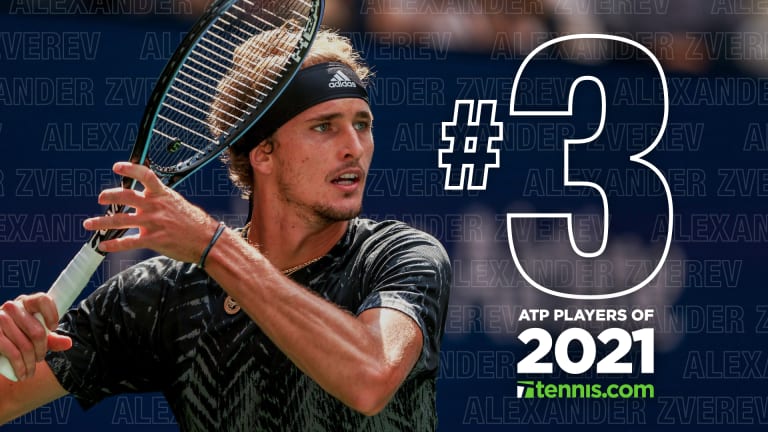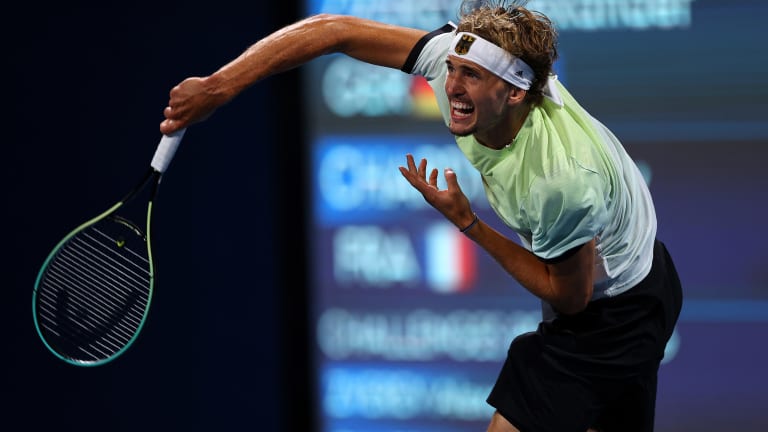Long before a pandemic redefined how we live our lives, tennis players would refer to their global circuit as a bubble: a traveling circus of solo acts, with well-compensated players and their vast support teams insulated from many of life’s realities.
You’d be hard-pressed to find a player who has more comprehensively occupied this bubble than Alexander Zverev. His parents—father Alexander and mother Irina—were both top Russian players. Zverev’s older brother, Mischa, turned pro in 2005. Though technically a citizen of Germany (Alexander is the only German-born member of his family), Zverev is more accurately a citizen of tennis.
Perhaps Zverev’s comfort in the tennis bubble was what allowed him to simultaneously have the best year of his career while also facing charges of domestic abuse from his ex-girlfriend, Olga Sharypova. The charges were first made public in a November 2020 story written by Ben Rothenberg in Racquet. A follow-up piece appeared in Slate in August 2021. In October, the ATP announced its own investigation.
“I think with this investigation that is now finally happening I hope this can be done and dusted from a third individual party and we can move on with everything else,” Zverev said this fall.

